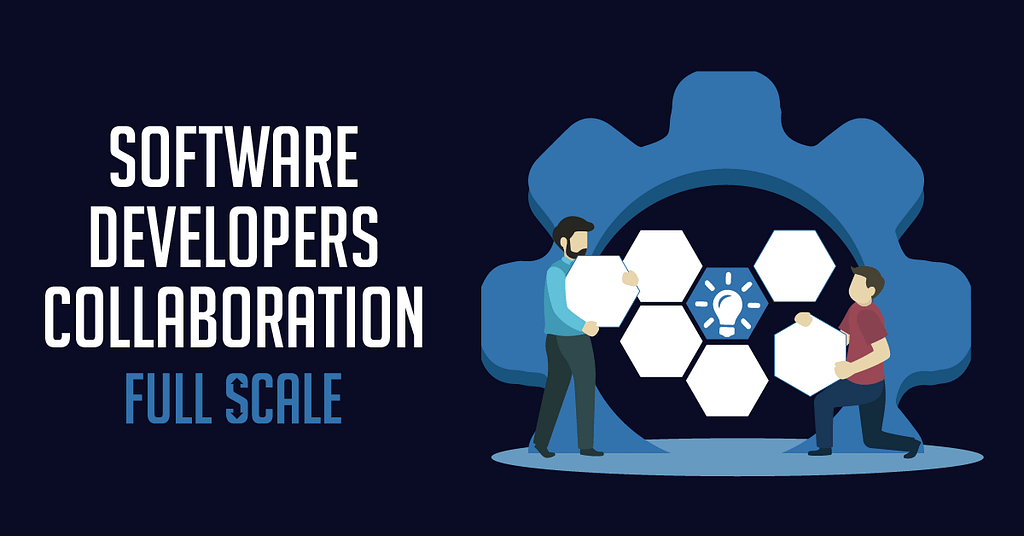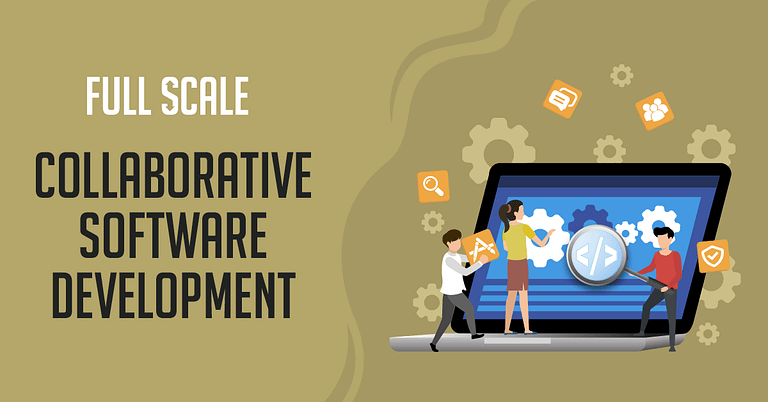Last Updated on 2024-10-11
Teamwork makes the dream work. Discover the benefits of collaborative software development and how you can get your team on board with it.
Behind every successful tech product is a team that puts in countless hard day’s work. Building software requires technical skills and a lot of patience, perseverance, and passion to work with others. This is why companies often screen software developers to see if they’re the right fit for their existing work culture and team dynamics.
With that said, businesses are also making efforts to improve the collaboration dynamics of their team, investing in better tools and techniques. This, in turn, helped boost the demand for collaboration tools in recent years. Collaborative software development is becoming the new norm, especially with the rising popularity of remote work.
But how exactly does collaboration affect software development? What are the advantages of hiring multiple experts to work on a project? Let’s delve further.
How Collaborative Software Development Helps Productivity
A diverse team with unique strengths and personalities is great. However, if their ideas are not properly heard and implemented, it may end up causing conflict instead. Here’s how collaboration in software development helps.
1. Better code quality
Software development heavily relies on complete and accurate documentation between team members. A strong collaborative dynamic ensures the review of all lines of code for errors and the adoption of coding standards. Members working together effectively can meet the project’s requirements while maintaining a clean codebase.
Additionally, collaborative software development also allows developers to pool their combined knowledge and expertise, resulting in more inventive ideas and a higher-quality end product. By working together, developers can discover possible concerns early on and address them before they become serious difficulties.
2. Shorter development time
Collaborative software development allows developers to collaborate on different software project elements concurrently, lowering total development time. This greater efficiency results in shorter project completion times and cheaper project expenses. Developers can decrease redundancy and enhance code quality by sharing code and resources.
Furthermore, collaborative software development can aid in the reduction of project risks. There is a larger probability that someone will discover a possible problem or issue and address it before it becomes a bigger risk.
3. Less bugs and faster resolutions
Generally, when there are more eyes looking at the same code, there’s less room for errors. It also comes in handy in troubleshooting problems and finding bugs. Teams can take a holistic approach to problem-solving when they have various viewpoints and experiences. They can detect and handle issues at a faster rate than one developer working alone.
Real-time communication tools promote fast knowledge sharing, while version control systems enable concurrent code work to maintain stability. Platforms like GitHub offer transparent project management, making issue tracking and bug resolution easier. This collaborative environment speeds up solutions and fosters innovation throughout the development process.
4. More creative ideas
Innovative solutions are inspired by open communication channels and sharing platforms. Feedback loops and peer reviews foster a constructive working dynamic in which members feel empowered. They are more likely to explore alternative techniques and push creative boundaries in problem-solving.
Working together, developers can generate fresh ideas and solutions. A collaborative culture also develops an environment in which team members feel comfortable sharing their ideas and experimenting with new ways.
How to Enhance Your Software Development Team’s Collaboration

Now that we’ve discussed the benefits of collaborative software development, here are some practical ways to improve your team’s work setup.
1. Identify the strengths and weaknesses of your team. What are the recurring challenges they face? How are they resolving it? It’s important to understand how effective their current dynamic is and where they fall short in the process. Figure out ways to boost your software development team’s performance by setting short-term and long-term metrics.
2. Promote a friendly work culture. Whether it’s adventurous team-building activities or a simple company event, team members need opportunities to get to know one another. When everyone gets along, they’ll be more comfortable to share their ideas and opinions on several matters. At Full Scale, for example, we have a team development program to promote camaraderie among our developers.
3. Learn the daily routine of your software development team. This way, you can find out if there are processes you can improve on or change completely. Perhaps, they can be more productive if fewer meetings exist. Or maybe they need a new expert to help out in one area of development. The first step is to get a clear view of their regular workflow and see if you can make it more efficient.
4. Lastly, understand the common development team roles and responsibilities. One of the common problems in team collaboration is misguided assignments and expectations. Often, a team member can fail on a task because their skills are not aligned with the work. This problem can become a roadblock in development and take up unnecessary time and resources.
Overall, the best way to improve your team’s collaboration is to ensure each member is willing to do the work. You need to vet tech experts who possess both hard skills and soft skills to work in a team effectively. This is why Full Scale set out to create a system that matches businesses with the right experts. Learn more about how Full Scale solves software development problems.
Build Your Software Development Team with Full Scale
Building your software development team? Full Scale specializes in handpicking top-tier software engineers. Our mission revolves around bridging the IT talent gap for businesses through outsourcing.
We boast an extensive talent pool of proactive IT experts enthusiastic about contributing to diverse development projects. Whether you’re looking for engineers, project managers, QA specialists, or marketing professionals, Full Scale is ready to assist you in assembling and managing your team.
Full Scale delivers tailored IT solutions meeting your company’s specific needs. Ready to elevate your business?
Contact Us Today!

Matt Watson is a serial tech entrepreneur who has started four companies and had a nine-figure exit. He was the founder and CTO of VinSolutions, the #1 CRM software used in today’s automotive industry. He has over twenty years of experience working as a tech CTO and building cutting-edge SaaS solutions.
As the CEO of Full Scale, he has helped over 100 tech companies build their software services and development teams. Full Scale specializes in helping tech companies grow by augmenting their in-house teams with software development talent from the Philippines.
Matt hosts Startup Hustle, a top podcast about entrepreneurship with over 6 million downloads. He has a wealth of knowledge about startups and business from his personal experience and from interviewing hundreds of other entrepreneurs.





